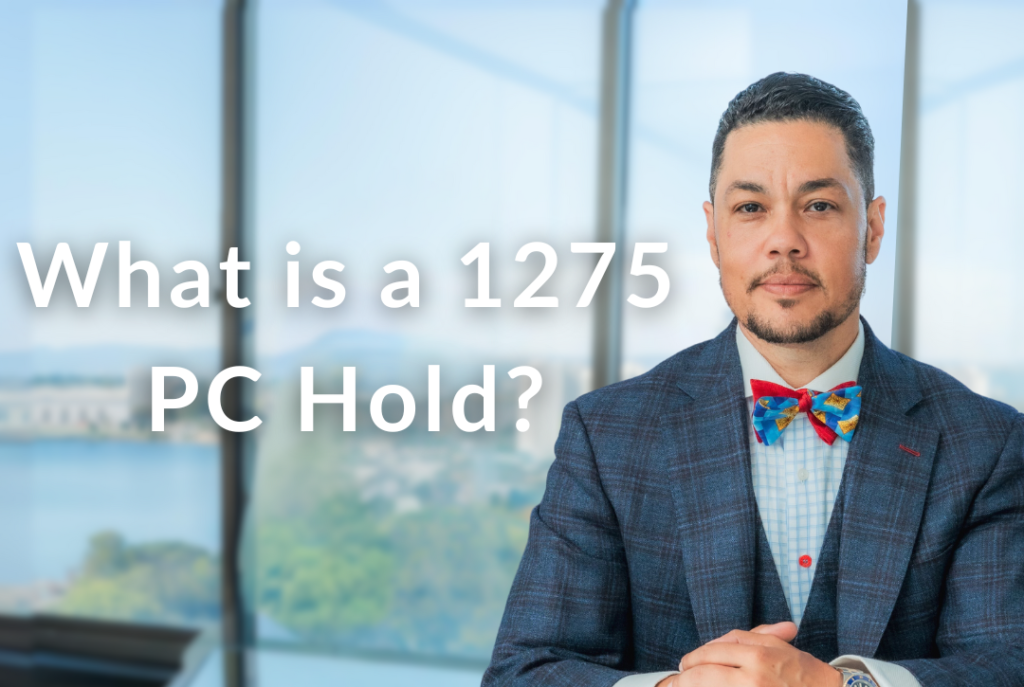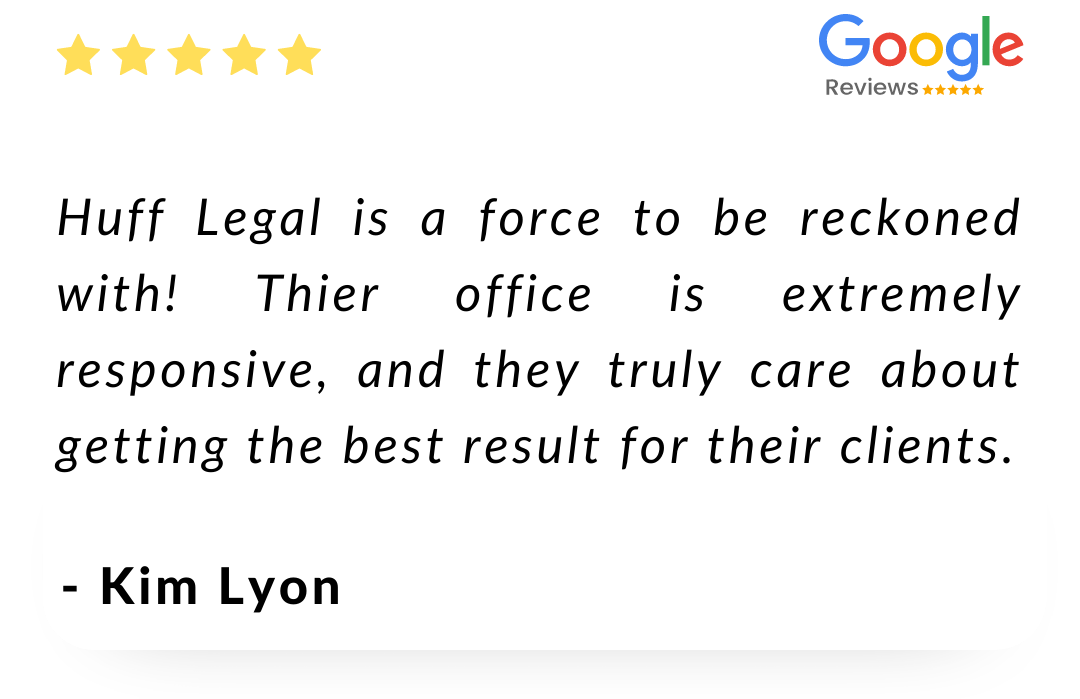What is a 1275 PC Hold?
What is a 1275 PC Hold?
A 1275 PC hold in California is a restriction placed on bail when there is suspicion that funds used for bail come from illegal sources. It prevents a person from posting bail until cleared by the court, which can delay the release.
Understanding how to challenge or remove a PC 1275 hold is essential for those affected. This article explains the 1275 PC law, provides examples of cases that trigger this hold, and discusses options for securing release. We’ll also cover the requirements for challenging a hold and when property or collateral can help.
1275 PC Hold - Explained
A PC 1275 hold is a legal restriction placed on bail when there is suspicion that the bail money or property used to secure a defendant’s release comes from criminal activity. Under California Penal Code 1275.1(a), bail cannot be accepted until a judge or magistrate confirms that the money or assets offered are legally obtained.
Its hold is commonly placed when charges involve crimes such as drug trafficking, money laundering, and other activities that may generate illicit funds. When a PC 1275 hold is issued, the defendant must prove the money’s legitimacy before they can post bail and secure release.
What Does the Law Say About PC 1275?
California Penal Code 1275 states that bail is intended primarily to ensure public safety and the defendant’s presence at trial. The law specifies that a judge must consider the seriousness of the offense, the defendant’s previous criminal record, and the likelihood of reappearance in court when setting bail.
Additionally, the judge considers factors like any potential threat to victims or witnesses and whether weapons or controlled substances were involved in the alleged crime. Under Penal Code 1275, any suspicion regarding the source of bail money justifies placing a hold until its legitimacy is confirmed.
Common Crimes Resulting in a PC 1275 Hold
A PC 1275 hold is most frequently imposed when the charges suggest that the defendant could fund bail using proceeds from illegal activities. Common crimes that may result in a PC 1275 hold include:
- Drug trafficking
- Gang-related activities
- Money laundering
- Extortion
- Embezzlement
- Grand theft
These offenses are often linked to cash or assets obtained unlawfully, prompting authorities to suspect that bail money might not be from legitimate sources.
Request a Free Consultation
Examples of a PC 1275 Hold in Action
- Example 1: John faces drug trafficking charges with a bail set at $200,000. When his cousin brings the cash to post bail, prosecutors issue a PC 1275 hold due to suspicions that the money is drug-related. John’s attorney must now prove that the funds are legally sourced.
- Example 2: Emily is charged with felony theft, and her parents pay a bail bond fee. The prosecution issues a PC 1275 hold, suspecting Emily might reimburse her parents with stolen funds. Emily’s parents must provide evidence that their income legitimately covers the bond fee.
- Example 3: David, charged with money laundering, puts his house up as collateral for bail. Prosecutors suspect the house was purchased with illicit funds and impose a PC 1275 hold until David can prove the home’s purchase was legitimate.
Challenging a PC 1275 Hold
If a PC 1275 hold is imposed, you have the legal right to challenge it. A 1275 Bail Hearing will be scheduled, where your attorney can present evidence to demonstrate that the funds or assets used for bail are lawfully obtained.
Being an accessory to murder can be charged as either a misdemeanor or a felony, depending on the case’s specific circumstances.
How to Challenge a PC 1275 Hold
Challenging a PC 1275 hold requires concrete evidence showing that the bail money or assets come from legal sources. Documentation such as bank statements, credit card records, pay stubs, and income tax returns may be used to verify the legitimacy of the funds.
In some cases, a person who provided bail money may need to testify or submit a sworn statement affirming the source of the funds.
What the Defense Needs to Show
The defense must provide clear, traceable proof that the funds are not tied to criminal activity. Common types of acceptable proof include:
- Bank statements showing legitimate deposits
- Tax records confirming reported income
- Sworn statements or affidavits from individuals providing the bail money
- Employment records indicating a stable, legal income source
The defense has the burden of proof, so it’s essential to present detailed financial documentation to lift the hold.
The 1275 Bail Hearing
When a PC 1275 hold is placed on bail, a hearing is held to determine if the bail funds come from a lawful source. During this hearing, it is the responsibility of the defendant, often with their attorney’s assistance, to provide evidence that the bail money is legitimate. This usually includes documents like bank statements, pay stubs, or tax returns showing a legal income source.
If someone other than the defendant provides the bail funds, that person may also need to present their financial records. The court generally looks for a clear, traceable financial history proving that neither the defendant nor their associates are using money linked to illegal activities to secure bail.
Can a Judge Change the Amount of Bail?
Yes, a judge has the authority to modify the amount of bail if there are sufficient grounds. If new information surfaces or circumstances change, the defense may request a bail reduction.
In California, judges have discretion over bail amounts, guided by a set bail schedule for specific crimes. However, if aggravating circumstances suggest a higher flight risk or danger to the public, the judge can increase the bail.
Conversely, if the defendant can demonstrate that they pose a low risk or have significant ties to the community, the judge may consider a bail reduction. For instance, for felony offenses, bail amounts in California can vary widely, typically ranging from $20,000 to over $1 million, depending on the nature and severity of the crime, the defendant’s criminal history, and other circumstances.

As Seen On












Post-Hold Proceedings
Once a PC 1275 hold is placed, specific steps must be followed to lift it and secure the defendant’s release. Post-hold proceedings require demonstrating that bail money or collateral comes from legitimate sources. Here’s a breakdown of the process.
Removal of a PC 1275 Hold
To remove a PC 1275 hold, the defendant must present clear evidence proving the legitimacy of the funds used for bail. Common documents to support this include:
- Bank statements showing lawful deposits
- Pay stubs or employment records proving legal income
- Tax returns demonstrating a consistent, legitimate financial history
- Affidavits from family or friends who provided bail money, if applicable
During the 1275 Bail Hearing, the judge assesses the evidence. If satisfied, the hold is lifted, allowing the defendant to post bail. If not, the hold remains in place until adequate proof is presented, delaying bail.
Using Property or Collateral to Secure Bail
Property or collateral may be used as an alternative if cash is questioned. Common types of collateral accepted include:
- Real estate
- Vehicles
- Stocks or other assets
These assets must still be proven legally acquired. The court often requires supporting documents like property deeds, asset ownership records, and statements verifying asset value. This alternative may be suitable for defendants who can provide a “paper trail” of ownership that aligns with the law.
How Bail Amounts Are Determined Under 1275
In California, bail amounts are set based on factors outlined in Penal Code 1275 PC. Judges consider:
- Public safety
- The seriousness of the offense
- Likelihood of the defendant appearing in court
- Defendant’s prior criminal record
Bail amounts vary widely, ranging from $20,000 for lesser offenses to over $1 million for serious felonies. For violent crimes or significant drug trafficking charges, bail is often higher to address flight risk. In cases with “unusual circumstances,” judges may adjust the bail amount but must document reasons, especially if bail is set below the standard schedule.
What Clients Say About Us





Schedule Your Free Consultation Today
Get Expert Legal Guidance with Huff Legal
Understanding a PC 1275 hold and its impact on bail is crucial if you or a loved one faces this situation. Having the right legal support can make a significant difference in securing release and navigating the hearing process.
At Huff Legal, we specialize in defending clients facing complex bail situations like PC 1275 holds. Our team is experienced in challenging holds, presenting clear evidence, and securing fair bail conditions.
Let us guide you through each step to protect your rights and help you get the best outcome possible. Contact Huff Legal today to get the support you need to navigate California’s bail system.
LET HUFF HELP YOU
As a former police officer and patrol supervisor and his time spent as a United States District Court Judicial Law Clerk to the Chief Judge, Attorney Huff knows how to navigate all levels of the complex criminal law system. We also have more than 55 years of combined experience dealing with various complex criminal legal matters and have helped just over 1,500 clients over the past few years.
Why Huff Is Your Best Option For Criminal Defense
55+ Years of Combined Experience
At Huff Legal, we have more than 55 years of combined experience dealing with complex criminal legal matters, which can oftentimes be quite challenging. In order to get the outcome you deserve, you need a team of experienced attorneys on your side, who can help you navigate the legal system, so you can move past this situation and focus on the life ahead of you!
5 Star Rating on Google
We have a proven track record of success and are dedicated to our clients’ best interests. If you’re looking for a law firm that will always have your back, look no further than Huff Legal. Just have a look at some of our amazing client reviews over here!
1,500+ Happy Clients
Over the years, we’ve had the privilege of helping over 1,500 clients with their legal needs. When you work with us, you can be confident that you’re getting the best possible legal representation. We’re proud of our track record and our reputation for being a firm that delivers great results.
What Our Clients Say About Us


Sheila


Abel Resendiz


Manuela Frazier


Doris
Contact Huff Today
Request A Free Consultation
* Free consultations only available for Criminal Defense


In legal terms, an accessory to murder refers to an individual who aids, abets, or otherwise assists in committing a murder. While the specifics may vary across jurisdictions, California law treats accessories to murder as active participants in the crime, holding them accountable for their actions. In San Francisco Bay Area, there are two primary types of accessories to murder:
In the event that you find yourself in the Bay Area facing accessory to murder charges, you should first call a criminal defense attorney who can help you defend your rights and lessen the effects of the investigation. Contact an attorney at Huff Legal as soon as possible following your arrest. An accomplished attorney from Huff Legal will thoroughly examine your case, who will then develop a strategy and build a defense.
